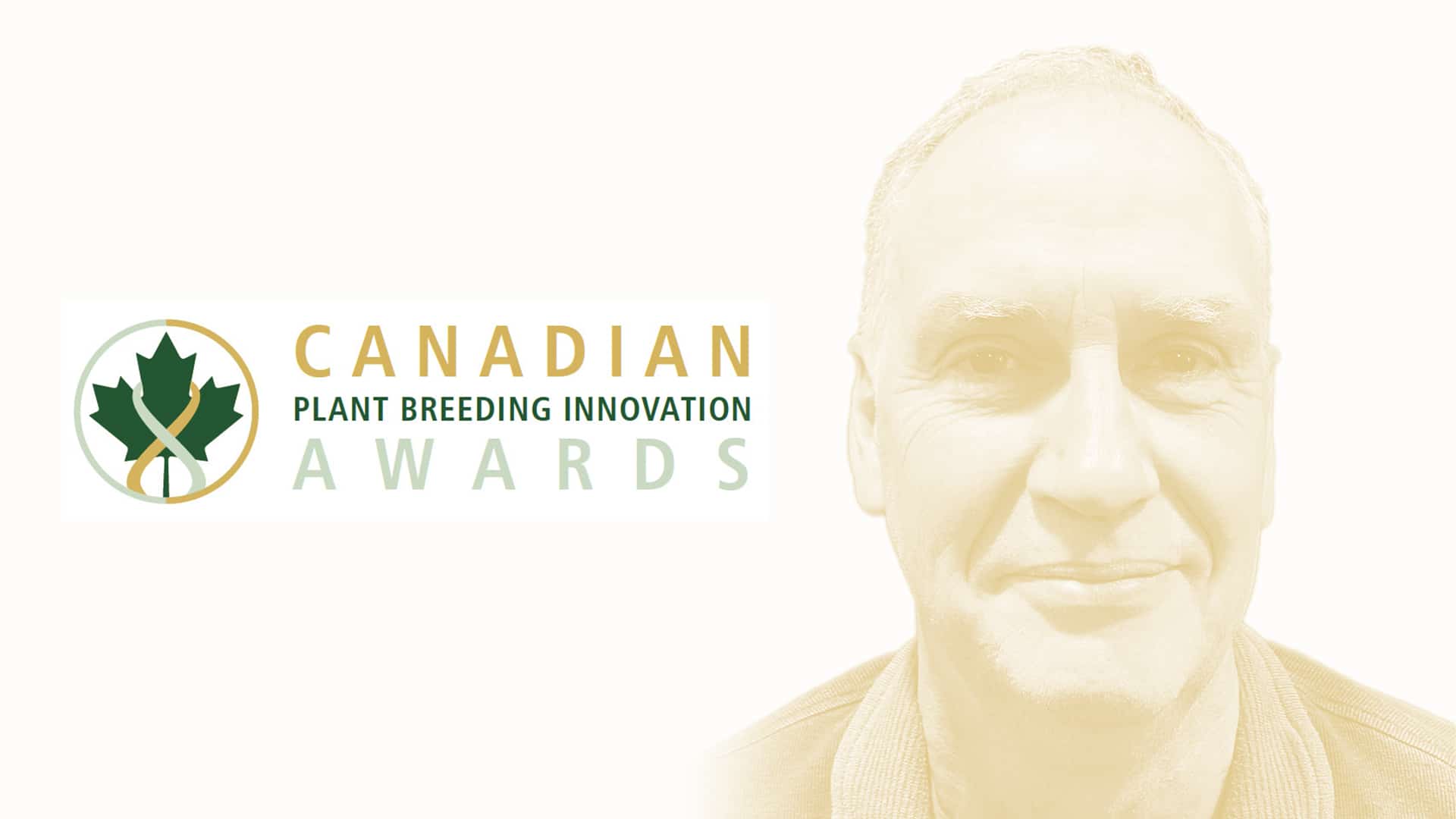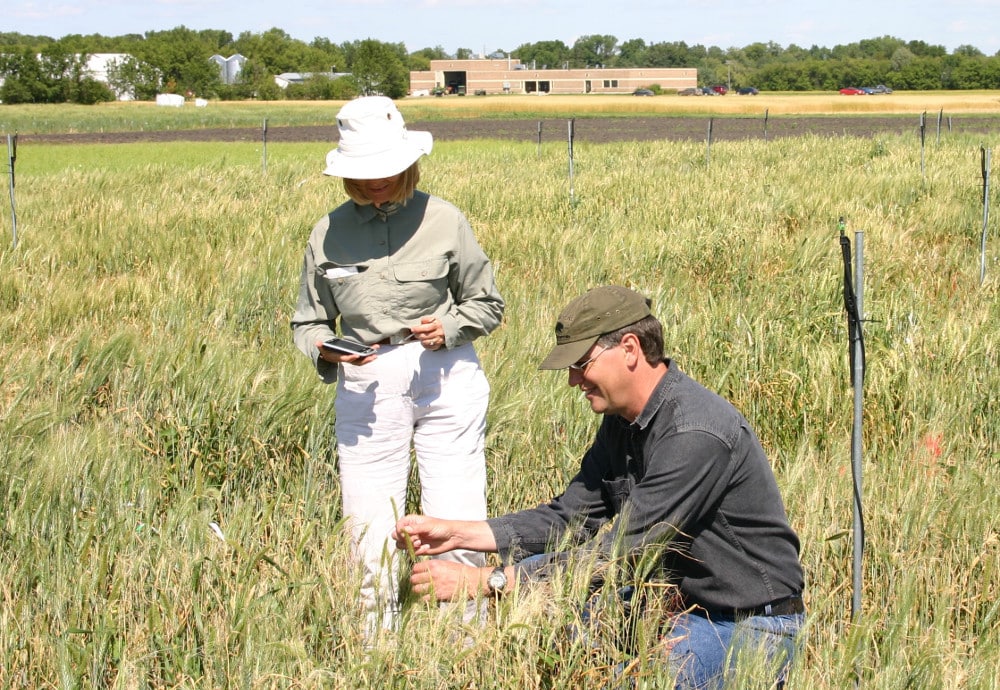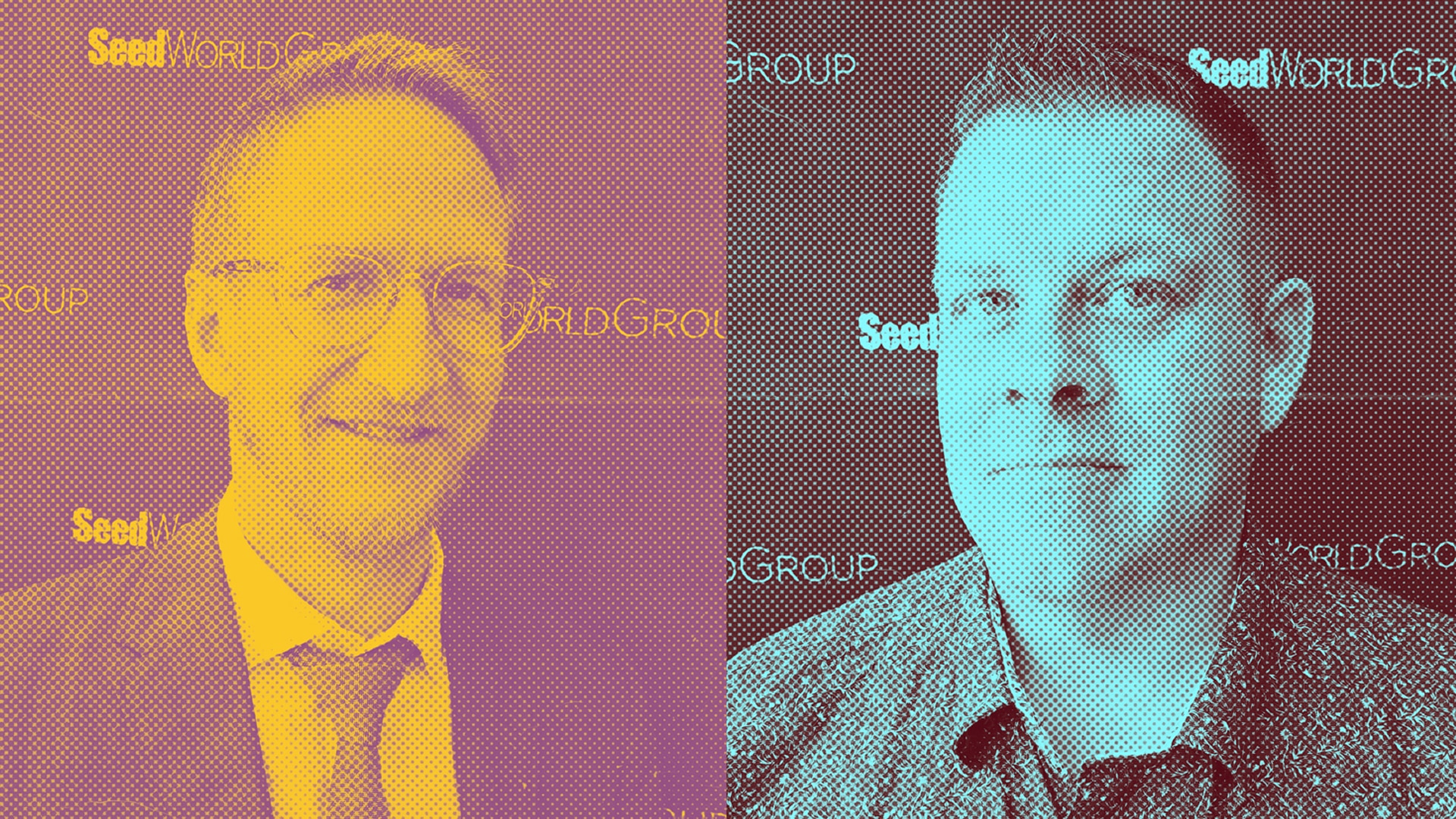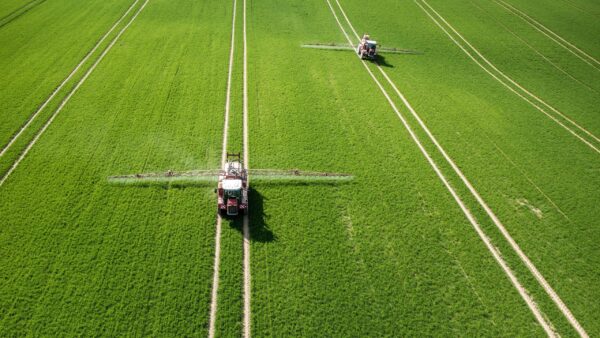Ron Knox has helped take Canadian wheat to heights never imagined. As the 2023 recipient of the Plant Breeding and Genetics Award, we reveal some of his secrets to success.
Ron Knox remembers growing up on a farm in Saskatchewan and learning about the wonders of wheat with his grandfather.
“One day I brought in a spike from our wheat field that was all brown and I remember asking him about it. Turns out it was loose smut, and I was fascinated by it. My mom always thought I asked too many questions, but I guess I was always curious about everything. Later on, I helped my grandpa transplant bedding plants in the garden, and I was thrilled when those plants grew and I got to watch them take off,” he says.
“My dad always encouraged that interest. He built me a greenhouse when I was maybe 10 or 12 years old. I loved raising plants and producing my own bedding plants to put out in the garden, and I was always keenly interested in the farming side of things as well.”
That one spike of wheat he brought into the house that day more than five decades ago can be credited with spawning a whole new generation of modern wheat the likes of which his grandfather could never have imagined. It’s what’s earned Knox the 2023 Plant Breeding & Genetics Award sponsored by Germination and Seeds Canada.
The award is given annually to a public or private sector researcher who has made a significant contribution to the advancement of Canadian plant agriculture through research in plant breeding and genetics.
Knox, 62, has worked in the cereals program of AAFC Swift Current since 1984, beginning as a technician and ultimately working towards a research scientist position in 1994. He also was an active farmer.
He’s devoted his life to raising agricultural productivity by increasing the genetic potential of wheat. He’s figured out how to boost the crop’s ability to achieve its genetic yield potential using biotechnology and molecular tools. Knox has combined traditional plant breeding with new technologies such as marker assisted selection, doubled haploids, genomic sequencing and genomic selection.
Knox’s vision to create integrated modern wheat breeding programs has led to the development and commercialization of many innovative bread wheat and durum wheat
varieties. As of 2021, he’s contributed to the development of 76 wheat cultivars. The impact of his breeding for disease resistance is seen in the highest adoption of two of the most disease-resistant cultivars in their respective classes — AAC Brandon at 38 per cent of acreage in 2021 and Transcend, the first durum doubled haploid variety, at 35 per cent.
The current value of grain from cultivars Knox has had a direct impact in the breeding of is over $1.5 billion, 70 per cent from international trade.
Aside from his contribution to wheat variety development and release, he is a well-respected scientist nationally and internationally. His publication record in applied genetics, genomics and biotechnology is substantial. Knox’s research has resulted in the genetic dissection of many traits that are the current target of marker-assisted selection by Canadian and international breeding programs in both the public and private sectors.
His work to dissect the genetic and genomic basis of genetically complex resistances in wheat has been essential to the development of wheat varieties expressing durable resistance to diseases and insect pests. He has optimized the use of doubled haploid technology in wheat breeding, reducing the time needed for adapted varieties to reach farmers’ fields. Of the 50 bread wheat cultivars co-developed by Knox, 11 were developed using doubled haploid technology.
His work in the area of marker assisted selection has also translated into benefits to growers and the wheat industry. AAC Viewfield, AAC Redberry and AAC Hockley were all developed using DNA markers for resistance to Fusarium head blight; AAC Wheatland and AAC Starbuck were selected to be resistant to the orange wheat blossom midge using DNA marker technology to support selection. AAC Goodwin (selected with a stem rust resistance marker) and AAC Concord (DNA marker selection for stem solidness) are also examples of the impact of Knox’s application of marker assisted selection on breeding.
As Knox looks to the future of wheat research, he sees climate change as the big challenge researchers like him need to help breeders deal with.
“Having wheat varieties that are stable yielders and respond well under stress conditions is really important. Nutrient use efficiency is going to be a huge concern and big part of our focus moving ahead,” Knox says.

Wheat Leader
Knox’s role in wheat breeding has not only resulted in many cultivars with high impact, but in training the next generation of young scientists, says one of his protégés, AAFC Swift Current wheat breeder Richard Cuthbert, who’s worked alongside Knox since 2011.
“As a young scientist and wheat breeder, I’ve really benefited from his experience and support. Ron has been a common factor in the careers of many successful scientists and breeders,” Cuthbert says.
Curtis Pozniak credits Knox with mentoring him as a young wheat breeder and encouraging him to take on the role of director of the University of Saskatchewan’s Crop Development Centre.
“There’s no doubt that my own success as a scientist and durum wheat breeder is due in part to Ron’s support and mentorship. He’s mentored many post-doctoral fellows over his career, and several of these young scientists have gone on to become industry leaders in science, breeding and academia,” Pozniak says.
Knox says having strong curiosity is really important to leadership success in plant science.
“Dedication and focus — those are some of the things I learned from those who mentored me. That tends to drive a person to put in the hard work that is needed in this field. Part of the mentoring process is to allow those people that I supervise the freedom to make mistakes and learn from their mistakes,” Knox says.
“As scientists, there’s a lot of pressure on us. Publishing is one; it takes an immense amount of time just managing research. It’s something we have to fight for, just getting out into the field and experiencing what’s going on there or in the lab.”













